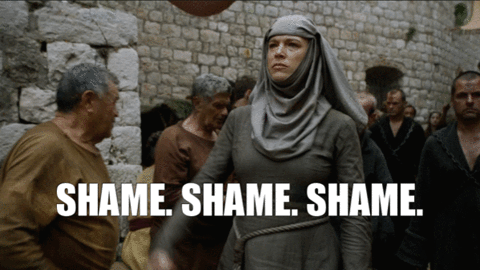Do you ‘should’ yourself? Do you feel ‘bad’ towards people and then tell yourself that you shouldn’t? Do you get into their story, their struggles to find compassion and understanding, rather than staying and honouring your own feelings? If so, this is a sign of toxic shame.
I wrote the poem ‘I hulp’ about shame, about hiding my true feelings as I was being shamed, as I was told I was ‘too sensitive’, thought ‘too much’. Why is this shaming? Because I was receiving a message that I was wrong for being this way - that’s what shame is, a sense of being wrong for being who you are.
Sometimes when I speak to clients about shame they mistake it for my saying that they are ashamed - that their behaviour is something that they must be ashamed about. This is not what I am saying, toxic shame is about feeling wrong, no matter what you do. It is the lifeblood of your inner critic.
Can you relate to this poem?
I hulp
I hulp.
A howl and gulp combined.
A technique I mastered long ago
To make sure my shame was not on show
As I sat in my heap of hulps.
Oh you won’t see me, no!
For I’ll say ‘never mind’
And put on a smile I honed for show.
A lie I learnt so long ago
As I sat in my heap of hulps.
I won’t reach out - that’s madness
But burn alone
In a silent chant of ‘I am wrong’
That gets carried away with its own song,
Serenading my heap of hulps.
For I am so very wrong!
That’s what I figured - so it must be so
When my mistakes were put on show
‘Cos, ‘Oh! They’re so funny, don’t you know!’
Those moments that made me hulp.
Brené Brown is a researcher into shame and vulnerability. She says,
‘Shame is the most powerful, master emotion. It’s the fear that we are not good enough.’
If we are not good enough, then where do we belong, and what can we do about it?
We all feel shame. Shame in and of itself actually has a healthy function, to alert us to the threat of disconnection with others - belonging is vital to our survival.1 When a small child gets told off for a mild social indiscretion they will feel some shame, it’s how social norms are created. An attuned parent will follow up the correction with a repair, a reconnection, a ‘you’re ok, it’s just that behaviour is not ok’.
When this doesn’t happen though, shame can build up. Toxic shame is a result of repeated rejection, scorn or empathic failure which can mean that the last thing we want to do is share how we are feeling or what we need.2
Where shame resides vulnerability hides.
It hides through addiction, rigid roles, resentment. It then gets passed on through control, perfectionism, contempt, criticism, blame, envy, judgment, black and white thinking.
The antidote to shame is empathy which can be really difficult because we all have our shame - so reaching out for empathy can trigger someone’s need to ‘get it right’ (perfectionism) or their need for you to ‘just get over it’ (contempt).
Toxic shame is a feeling of being flawed, diminished, inadequate; unworthy of belonging.
That’s not true though. We are all worthy of belonging, It’s just shame tells us otherwise, just like trauma. We have to reach out and fail and reach out and miss and reach out and try again. It takes resilience. Toxic shame is a response to trauma.
Toxic shame comes for emotional abandonment. In my podcast episode with Marc Pimsler, Marc and I both shared different stories that we had about when our shame was triggered. Marc described how the only way to receive empathy, which can help us through our shame, is through exposure; exposing those parts of ourselves that we would rather deny or hide in order to try and belong.
Marc shared his 3 stage process to recovering from shame:
Stage 1 is recovery, owning our self and our story wholly, removing medicators so that we can feel in order to heal.
Stage 2 - the uncovering of ourselves from our story, identifying those experiences which gave us limiting messages and how those messages inform our behaviour today
And finally Stage 3 - discovering who we’ve been all along. Because ultimately, we are all lanterns who need to be clean and clear so that our own individual, unique light can shine.
There were so many gems in this conversation, I think its probably worth listening to a couple of times. You can find out more about Marc at www.marcpimsler.com.
Here is the podcast episode:
Watch out for next week where I’ll be doing a shelfie - book recommendations for some of the subjects that I’ve shared in the recent weeks.
That’s it for now.
‘Til next time!
Jacky x




